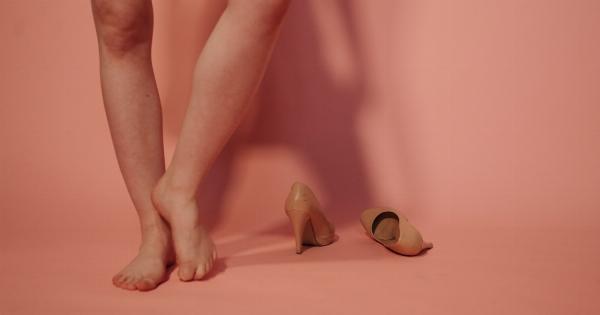Pregnancy is a beautiful journey that brings several changes in a woman’s body. From fluctuating hormones to weight gain, it’s crucial for expecting mothers to prioritize their comfort and well-being.
One aspect that often gets overlooked is the choice of footwear. While high heels may look stylish and glamorous, wearing them during pregnancy can pose potential risks, particularly to your nails. Here’s why you should reconsider wearing high heels during this special time.
1. Pressure on Toes
High heels can exert immense pressure on your toes, leading to a host of foot problems. During pregnancy, the hormone relaxin increases the flexibility of your joints, including those in your feet.
This increased flexibility combined with the pressure from high heels can result in misalignment of the toes and increased pain.
2. Ingrown Nails
The pressure on your toes caused by wearing high heels can also contribute to the development of ingrown nails. As the nails are pressed against the sides of your shoes, they can become curved, grow into the skin, and cause pain and inflammation.
Ingrown nails can be particularly uncomfortable during pregnancy when your body may already experience heightened sensitivity.
3. Reduced Blood Circulation
High heels often have narrow toe boxes that restrict the natural movement of your feet. This compression can result in reduced blood circulation, leading to various complications.
During pregnancy, proper blood circulation is crucial for the well-being of both you and your baby. Impaired blood flow can cause discomfort, swelling, and affect the health of your nails.
4. Damaged Nail Growth
Pregnancy hormones can affect the growth and quality of your nails. The combination of hormonal changes and the prolonged use of high heels can negatively impact the healthy growth of your nails. They may become brittle, weak, and prone to breakage.
5. Increased Risk of Falls
Balance becomes a bit more challenging during pregnancy due to the changes in your center of gravity. Wearing high heels further increases the risk of losing balance and falling, which can lead to potential injuries.
Protecting yourself and your baby’s well-being should be the top priority, and opting for comfortable, stable footwear is a wise choice.
6. Swollen Feet and Ankles
During pregnancy, it is common for women to experience swelling in their feet and ankles due to fluid retention. Wearing high heels can exacerbate this swelling, leading to discomfort and potentially causing damage to the nail bed.
Opting for supportive footwear with adequate space can help alleviate swelling and minimize the risk of nail-related issues.
7. Increased Back Pain
High heels alter your posture and shift your body’s center of gravity, increasing strain on your back. Pregnancy already puts a considerable amount of stress on your spine, and wearing high heels can exacerbate back pain.
Choosing shoes with proper arch support and heel cushioning can help distribute the weight evenly and reduce the strain on your back.
8. Fungal Infections
Pregnant women are more susceptible to fungal infections due to hormonal changes that alter the body’s pH balance. Wearing high heels that often lack proper ventilation can create a moist environment, ideal for the growth of fungi.
Fungal infections can affect both the skin and the nails. To prevent such infections, it is advisable to wear breathable shoes made of natural materials.
9. Pressure on the Achilles Tendon
Wearing high heels puts the Achilles tendon under tension, causing it to tighten and potentially lead to discomfort and pain. Pregnancy hormones, again, increase the risk of strains and sprains due to increased elasticity in the ligaments.
Minimizing the pressure on your Achilles tendon can help prevent unnecessary pain and potential long-term issues.
10. Impact on Posture
During pregnancy, your body undergoes significant changes to accommodate the growing baby. High heels alter your posture and can disrupt the natural alignment of your spine.
This misalignment can further lead to discomfort, muscle fatigue, and even long-term posture problems. Opting for flat or low-heeled shoes can provide better support and maintain a healthier posture.






























